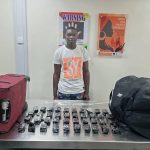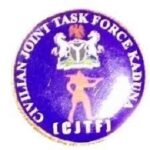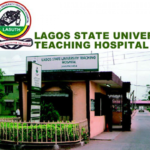COP28: LAGOS SETS 2035 TARGET FOR METHANE POLLUTION ABATEMENT
December 3, 2023
Global effort to lower emission levels of organic pollutants would not yield desired outcome if industrialised economies continue to pay lip service to interventions that can double the capacity of sub-national players in cutting organic pollution in the waste sector.
This was the submission of Lagos State Governor Babajide Sanwo-Olu at the Local Climate Action Summit – a side conference organised by Sub-national Climate Action Leaders Exchange (SCALE) at the ongoing 28th session of Conference of Parties (COP28) in Dubai, United Arab Emirates.
The Governor stated that the State Government has the goal to reduce methane emissions by 45 percent by 2035 in Lagos predicated on consistent funding of its waste processing capacity.
He spoke at a panel discussion with the theme: “Lowering Organic Waste Methane”, presided over by the U.S. Special Presidential Envoy for Climate, Mr. John Kerry and Mr. Michael Bloomberg, founder of Bloomberg LP and Special Envoy to the United Nations (UN) Secretary-General on Climate Ambition.
Sanwo-Olu said Lagos, on its own, had committed personal finances to double intervention in material waste recovery, which built waste processing capacity below the required benchmark.
He emphasised the need for Lagos to build an infrastructure that could process between 6,000 and 8,000 metric tonnes of public waste daily in order to reduce organic methane emissions.
His words, “As a sub-national, Lagos has put forward efforts to ensure we sort the waste at the dumpsite and isolate methane emission. We have set up a target, which aims at cutting methane emissions by 15 to 20 percent in 2030 and by 45 percent in 2035. However, we will not be able to achieve global methane pledge if we don’t get the support we require. If there is no honest conversation with real partners at the COP level, our present efforts might take time to get the desired result”.
According to Sanwo-Olu, Lagos, as a member of C40 Cities, generates 13,000 metric tonnes of public waste daily, with about half of waste collected emitting organic methane. This is twice the challenges facing Domincan Republic and Santiago City combined in organic waste management.
He said, “Since Lagos carries twice the problems of two cities. We need to get twice the support to address the gap and bring about a solution. Our political will to cut emissions is fully supported by the regulatory framework to do what is required of us. As a fast-rising economy in Africa, we need all the support of industrialised economies. Any success in any part of the world without African success would amount to little progress”.
“There is a need for real partnership. We need to stop talking and get our boots on the ground for practical action. This partnership must be focused and bring forward solutions. On our own part, the legal framework for action is already in place, we only need committed partners to take it forward.
“My message to Mr. John Kerry is that this conversation must bring about concrete takeaways that will show that we are on the same path to ensure all the commitments we signed on to are delivered in reality”, Sanwo-Olu said.
The U.S. Special Presidential Envoy for Climate, Mr. John Kerry, remarked that the LOW-Methane project would be pivotal for leveraging multi-level action to tackle methane from waste, which, he said, accounts for 20 percent of global methane emissions.
“To keep a 1.5 Celsius future within reach, we need everyone – cities, states, regions, and national governments – to keep stepping up their ambition,” the U.S. Special Presidential Envoy for Climate said.
On his part, Mr. Michael Bloomberg, founder of Bloomberg LP and Special Envoy to the United Nations (UN) Secretary-General on Climate Ambition, said methane remained “a critical piece of the climate puzzle” which required data and transparency to tackle.
Other panelists included Governor of Santiago City in Chile, Mr. Claudio Orrego; Vice Minister on Climate Change and Sustainability of Dominican Republic, Ms. Milagros De Camps and Director-General of National Council on Climate Change in Nigeria, Dr. Salisu Dahiru.
Recall that the SCALE initiative was launched last year by the United States (U.S.) Department of State and Bloomberg Philanthropies with support funds to empower subnational champions in C40 Cities to drive climate ambition, with an initial focus on accelerating implementation of the Global Methane Pledge. Countries with high methane emissions pledged to reduce emissions by 30 percent by 2030.








